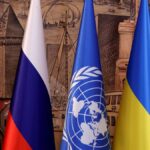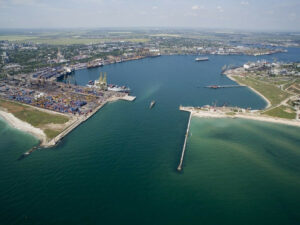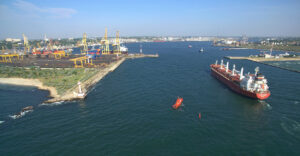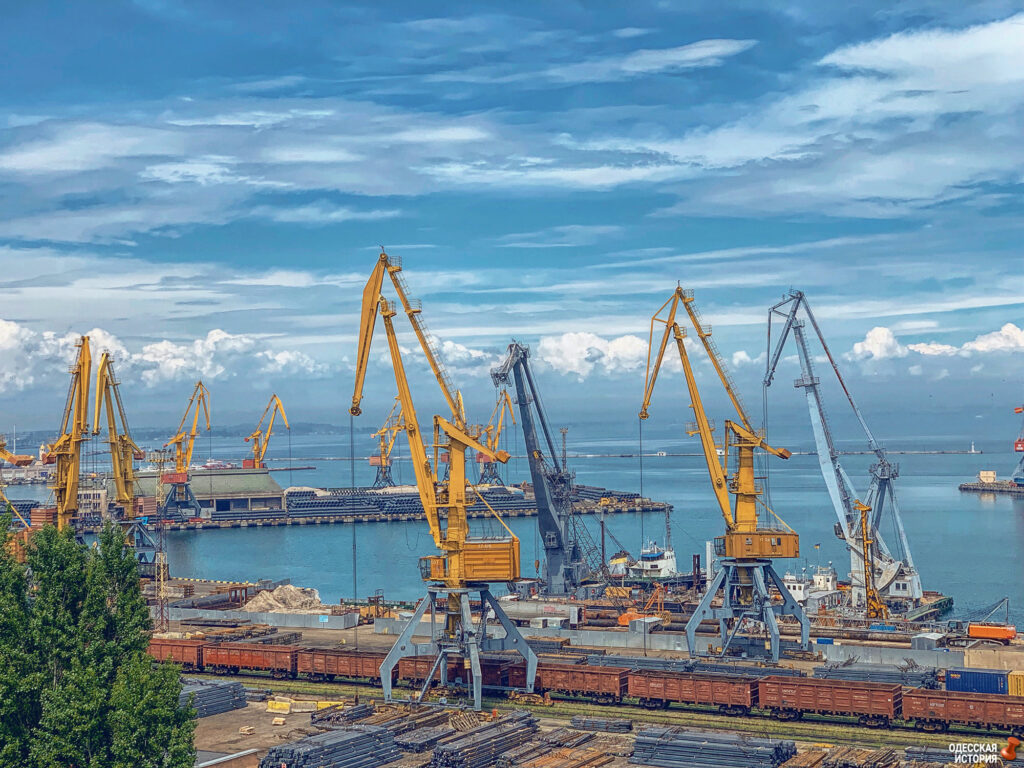Crime and NON -punishment: what to expect from the Istanbul Agreements
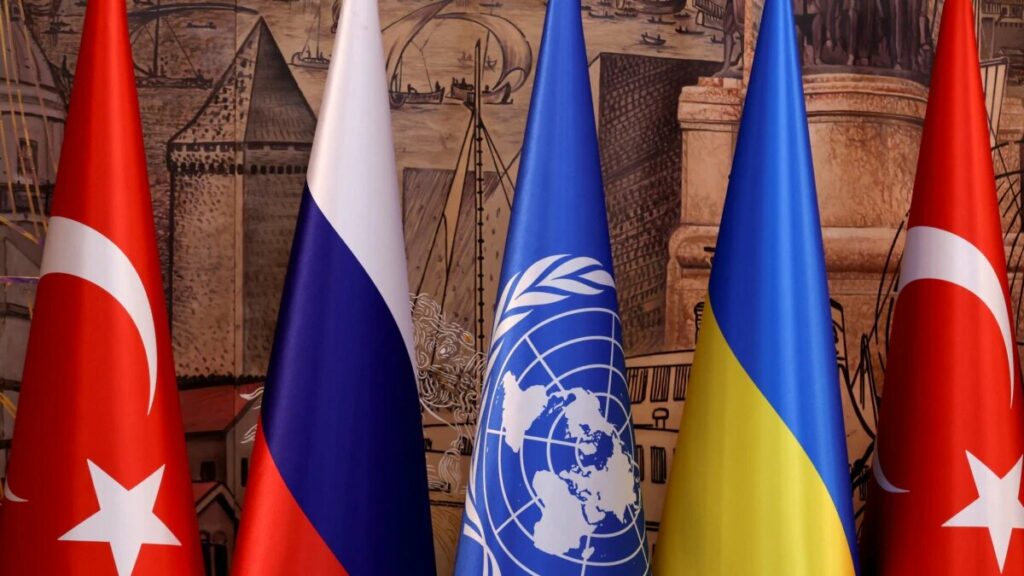
On Friday, July 22, Ukraine signed the Istanbul Agreement with Turkey and the UN, which provides for the safe export of grain from Ukrainian ports. Russia signed a similar agreement with the UN and Turkey (and has already violated it).
The parties that signed the Agreements assume responsibility for the safety of the traffic of the vessels with grain from Ukrainian ports. Among those responsible are the UN, Ukraine, Turkey and russian federation.
Russia has repeatedly demonstrated its attitude to any agreements. Turkey, in turn, is trying to “balance” between Ukraine and russian rederation. Since the last time, Turkey has been conducting active sea trade, despite warnings that the russians are stealing these cargoes in the occupied territories of Ukraine. Given the ambiguity of the position of the two parties to the agreement, many Ukrainian experts in the port industry do not trust the Istanbul Agreements.
Ukraine agreed to sign the document due to the impossibility of categorically rejecting the UN – this is the opinion of Andrey Klymenko, head of the Black Sea Strategic Studies Institute. By rejecting the Agreement, Ukraine would receive accusations of provoking a famine from the international community, largely thanks to propaganda that is still capable of clouding the brightest minds of Western politicians and diplomats.

What is the essence of the Istanbul Agreements?
The document was published on Facebook by Deputy Head of the Office of the President, Ambassador Extraordinary and Plenipotentiary of Ukraine to Turkey Andriy Sibiga.
- There is no “betrayal” in the text of the document, Klymenko believes. In fact, the UN and Turkey have entrusted themselves with the duties of ship managers, organizers of the process, who will directly worry about the search for ships and the possibilities of insuring them. Both are large-scale problems, which will be difficult and long to solve.
- There is no “grain ceasefire” at the front. Russia has committed itself not to shoot at the ports of Odessa, Chernomorsk and Pivdenny, as well as at ships proceeding to or from the ports. Spoiler: russia has already violated this obligation, but USM will talk about this later.
- There will be no foreign militarymen in Ukrainian ports and territorial waters (12 nautical miles from the coast, or 22.224 km). The security of the Ukrainian coast at a distance of at least 150 km is provided by the Neptune and Harpoon coastal missile systems. Confidence in security is added by the fact of the liberation of Zmeiny Island from russian invaders, Andrey Klimenko notes.
- There will also be no demining of the coast. Safe fairways will be determined for the passage of the vessel.
- The contract is valid for 120 days. The term was chosen taking into account the fact that before the invasion of russian federation, Ukraine sent about 5 million tons of grain per month through the ports. Now 20 million tons of grain are blocked in the ports. Thus, if with the help of agreements Ukraine can export the previous volume of grain, then the granaries in the ports will be freed up within 4 months.
- The sanctions on food exports were not just NOT removed from moscow, they were initially absent, both from the EU and the US. Another thing is that companies voluntarily refuse to work in russian federation, not wanting to associate themselves with a terrorist state, or fearing sanctions due to banking transactions with russian federation. As for russian mineral fertilizers, they were not subject to sanctions, but to American anti-dumping duties.
The fact that the Kremlin agreed to the Istanbul Agreements is already a small “victory”. It is unlikely that russia would have made such diplomatic decisions if it had been 100% sure of its own power and invincibility. And this once again proves that the russians are influenced not by endless negotiations, but by the news about the supply of serious weapons to Ukraine. But it is possible that russian federation considers the Istanbul agreements as a starting point for easing sanctions.

Who will go to the “Istanbul risks”?
Export is a chain consisting of many business participants, including foreign ones. Accordingly, for many of them, the provision of activities in the Black Sea is an additional risk that has its price. Insurers and ship owners will certainly take into account possible provocations by a terrorist state and the presence of mines in the sea, and this will also be included in the cost of logistics, BARVA Invest analysts say.
Above, USM wrote that ships with Ukrainian grain will pass through certain safe fairways. However, it is not yet known whether these passages are designed for Panamax-class vessels (the main type of merchant ships for bulk grain and oilseeds).
It is also unclear to what extent the other parties to the Agreement are ready to guarantee the safety of the vessel. Russia has previously said that Turkey’s participation in the treaty is enough, despite the fact that the UK has repeatedly offered assistance in mine clearance.
However, in the optimistic scenario, the Agreement will bring farmers and other market participants cheaper logistics and the ability to export large volumes of grain without downtime and transit through the EU. Also, BARVA Invest is confident that subsequently the price that the manufacturer sees should rise significantly on an EXW basis.
Let’s go back to reality: Russia is a terrorist
The fears were confirmed. On July 23, the day after the signing of the Istanbul Agreements, the russians attacked the port of Odesa with four missiles. Two of them damaged the infrastructure of the port. How did the parties to the agreement react to the incident?

Turkey. On the day of the missile attack on Odesa, Turkish Defense Minister Hulusi Akar said that he had spoken with the Russian side. There he was told that they allegedly were not involved in the missile strike and were “investigating the issue.”
Turkish President Recep Tayyip Erdogan also spoke about the attack on the Odessa port.
“We see how delicate the process is still, in connection with the attack on the port of Odessa on Saturday. We didn’t want it to happen, but it did. We expect everyone to fulfill their part of the agreement. Its failure will turn against us all,” Erdogan said.
Who did the Turkish president urge to fulfill the agreements if the port was attacked by the russians? The reluctance to point the finger at a specific culprit and say his name is a clear demonstration of Turkey’s diplomatic “balancing”.
Russia. At first, russian politicians “shifted their arrows” to Ukraine, denying their involvement in the missile attack. But then the local “diplomats” decided that the act of terrorism could not be hidden, because this would be followed by a maximum of “high concern” from the UN.
On July 24, the official representative of the russian Foreign Ministry, Maria Zakharova, wrote on her Telegram channel: “Kalibr missiles destroyed the military infrastructure of the Odesa port, sending a Ukrainian military boat to the address beloved by the Kyiv regime with a high-precision strike.” Whether Zakharova writes on the social network on her own, or is it done for her, the level of “diplomatic” communication in the russian federation has been demonstrated.
On the same day, the russian Foreign Ministry itself reported on the missile attack on the port of Odessa: “In the seaport of the city of Odessa, on the territory of the shipyard, sea-based high-precision long-range missiles destroyed a Ukrainian warship that was in the dock and a warehouse of Harpoon anti-ship missiles supplied by the United States to the Kyiv regime.” Later on, this fantasy of russian politicians was опровергла британская разведка.
The UN takes a similar position. One of the top UN officials said that the Russian Federation, with its attack on the Odessa port, “perhaps technically did not violate” the agreements signed in Istanbul. The words of the official were provided by the The New York Times, without giving the name and position of the speaker.
The official noted that Moscow did not undertake to refrain from strikes on those parts of Ukrainian ports that are not directly involved in the export of grain. It turns out that if there was a military target somewhere nearby, Russia could take advantage of this loophole in the document.
In the published text of the Ukrainian copy of the agreement, the parties promise that they will in no way attack merchant and other civilian ships, as well as the port facilities involved in the implementation of the agreements, European Pravda reports. However, we recall that russian missiles damaged the infrastructure of the port and fell near the grain storage.

Considering that the attack on the “warship” turned out to be another lie of russian federation, most likely it was an accident, and not a “precision strike”, which the aggressor country is clearly not famous for. Such attacks only confirm that russia is a terrorist “monkey with a grenade”. However, even real russian strikes against the military infrastructure of another independent country cannot be justified.
The strike on the Odessa port was not only a demonstration of the Kremlin’s attitude to international agreements. The russian attack has become a “litmus test” of the attitude of other parties of the agreement to non-fulfillment of obligations. Both Turkey and the UN limited themselves to “anxiety”, “concern” and other set of symptoms for a psychiatrist’s office. So far, it is clear that if the russian federation continues to attack the Ukrainian ports involved in the export of grain under the Agreements, Ukraine will receive only another portion of sympathy in response.
Olga Gorbenko
